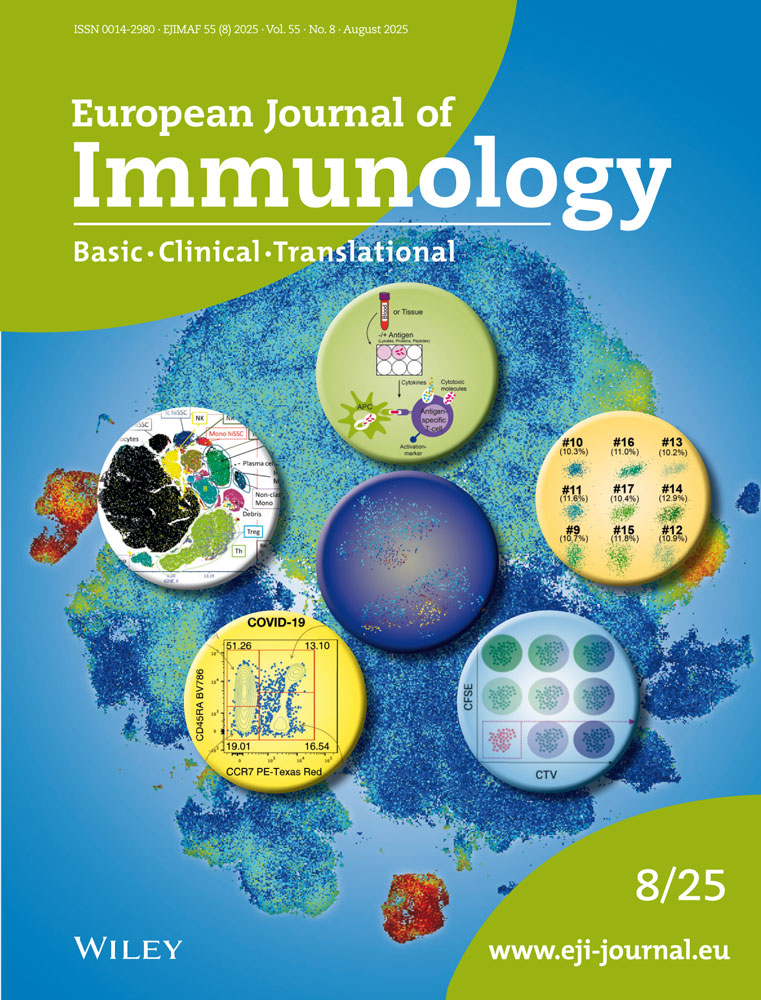An adjunct trait of hel/i-ab-specific t helper cell is sensitivity to antigen-specific immunosuppression
Abstract
The present study tests whether the specific inhibition of helper T (Th) cell (and T hybridomas) by suppressor T (Ts) cells is a phenotypic trait of Th cells correlating with their acquired specificity for antigedmajor histocompatibility complex or a genotypic trait not related to selection of the T cell repertoire for antigen. To do this we took advantage of the fact that H-2d parental strains of mice commonly restrict recognition of chicken egg-white lysozyme to the L3 peptide (a.a. 105-129) and H-2b parental mice to the L2 peptide (a.a. 13-105). F1 hybrids of these strains display two subsets of lysozyme-reactive T cells, one for each parental phenotype. Using (B10 x B10.D2)Fl mice reconstituted with B10.D2 bone marrow, we were able to develop genetic H-2d T cell clones that could express an atypical specificity, that is L2/I-Ab. Clones of this type, like genetic H-2b, are also sensitive to the inhibiting effects of HEL-activated T, cells. To overcome some of the drawbacks of using heterogeneous populations of T, B and accessory cells in our assays, we constructed T hybridomas from HEL-immune, chimeric lymph node T cell blasts which respond to a unique antigedmajor histocompatibility complex with production of the lymphokine interleukin 2. Our results indicate that all HEL/I-Ab-specific T cells (helper and hybridomas) are inhibited by suppression regardless of the T cell's haplotype at the H-2 locus: H-2b (B10), H-2d (D2) or H-2b,d (BDF1). Furthermore, there is a strict correlation between the antigen and I-A specificity: I-Ab-restricted T cells recognize non-L3 determinants even though some are derived from H-2d mice.




